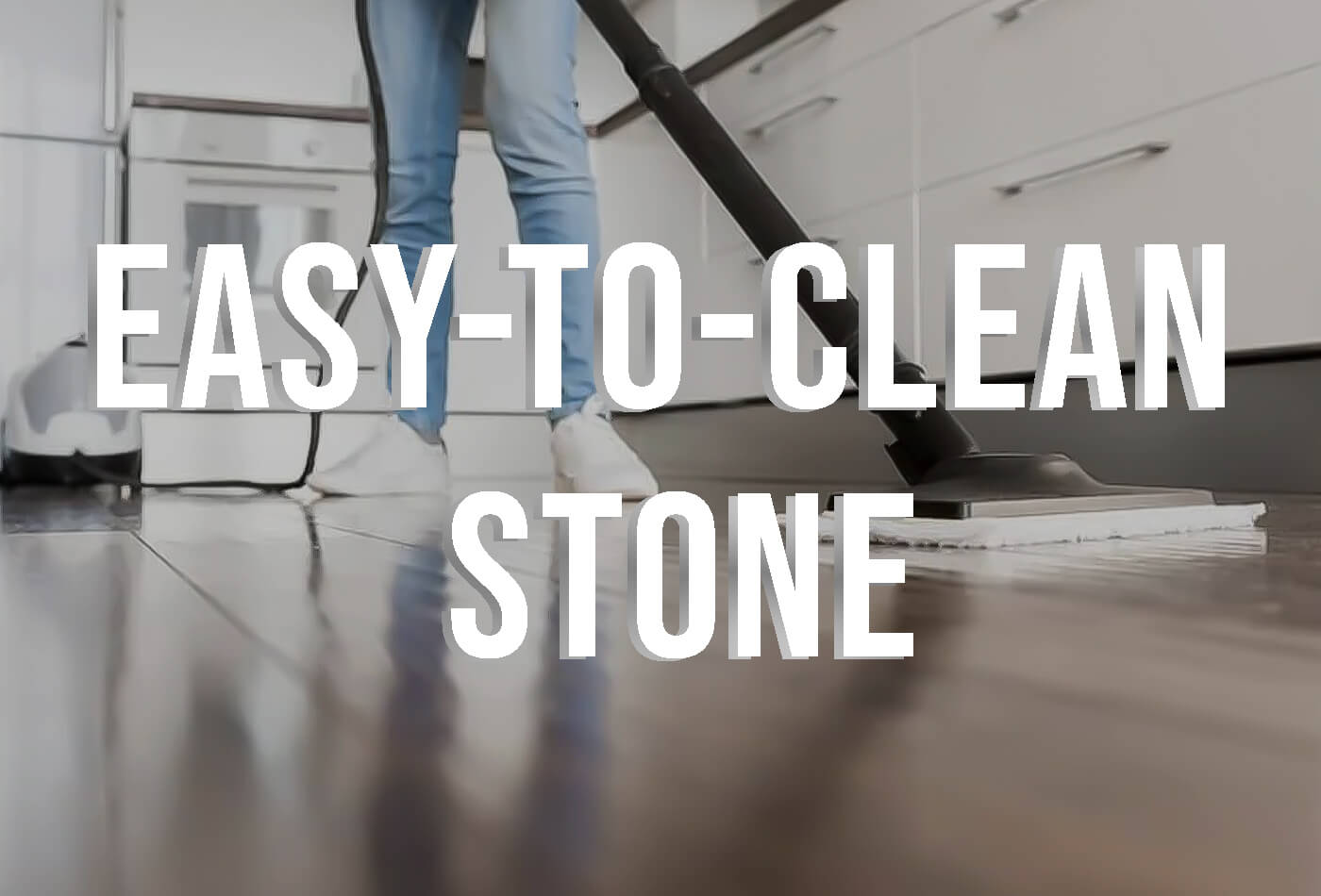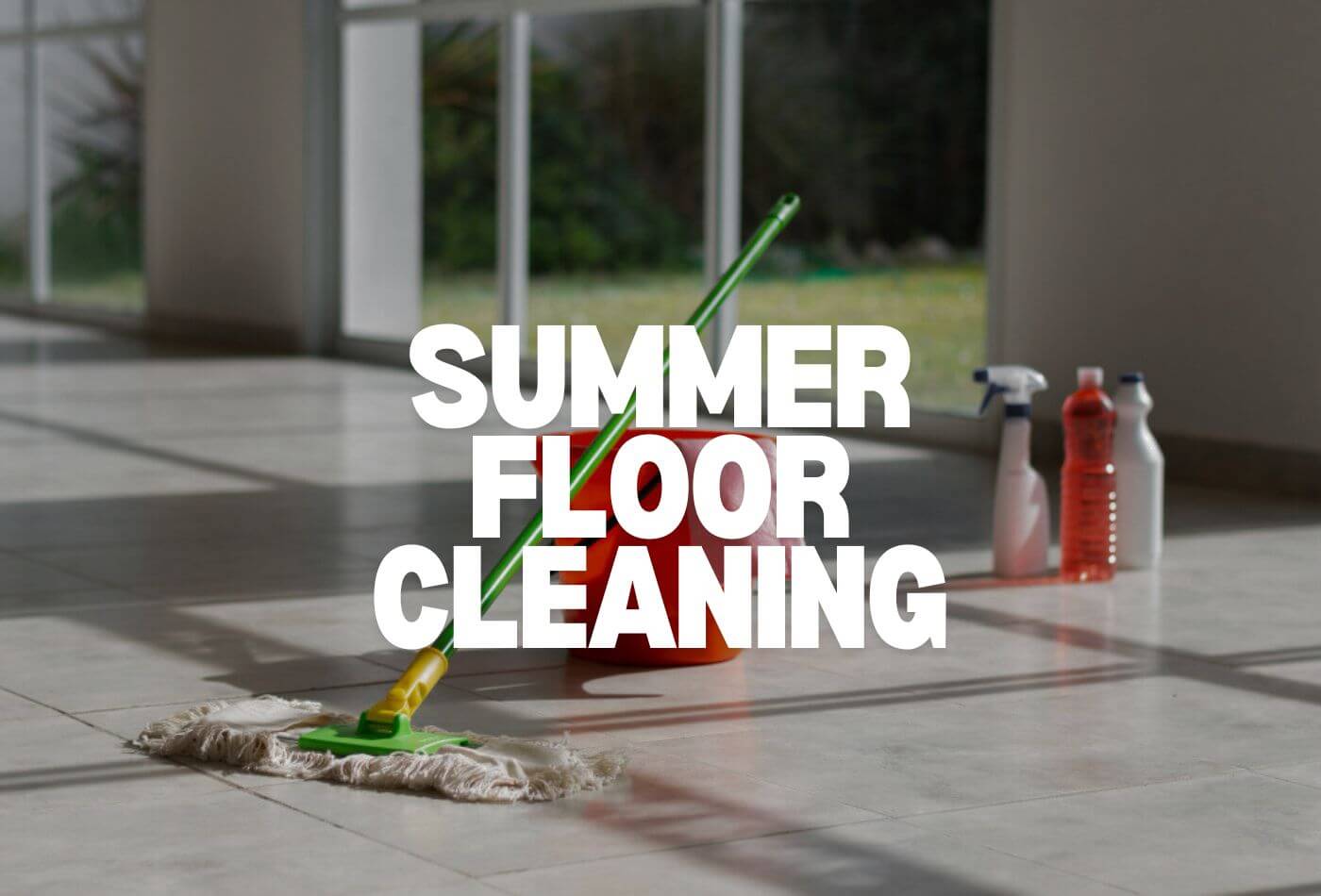Table of Contents
The timeless elegance and the natural beauty of these stone countertops, floors, and backsplashes elevate any space. But these stones often come with a question of easy-to-clean stone. Can you maintain that luxurious look without a rigorous cleaning routine? The answer is yes!! Here, the world explores the easy-to-clean stone that delves into its cleaning requirements, stain removal strategies, and the most low-maintenance stone options for your home.
What is the Best Thing to Clean Natural Stone?
Cleaning a natural stone requires a gentle touch and the right products. So here are some of the best things to use for cleaning natural stones.
Ph- Neutral Cleaners
These are designed for natural stone surfaces and are very gentle enough to avoid damaging the stone.
Warm Water
Often, this warm water is sufficient for daily cleaning. It helps to remove dust and light dirt without causing harm.
Microfiber Cloths

These are great for removing stone surfaces as they are nonabrasive and absorbent.
Stone Soap
Specially formulated stone soaps can clean and condition the stone, maintaining its natural beauty.
These gentle cleaning agents will ensure your stone remains in top condition without the risk of etching or damage.
How Do You Get Stains Off of Stone?
Even with Easy-to-clean stone, accidents happen. Here’s a fundamental approach to removing stains:
Act Quickly
The sooner you address a stain, the easier it is to remove. Blot up any spills immediately with a clean, absorbent cloth. Don't scrub, as this can spread the stain further.
Identify Stain
Knowing the culprit, i.e., coffee or wine, helps you determine the best cleaning approach.
Neutral Stone Cleaner

A gently neutral PH stone cleaner is your best bet for everyday spills. Follow the instructions for application and rinsing.
Poultice for Tough Stains
We create a poultice using baking soda and water for stubborn stains. Apply the paste to the stain, cover it with plastic wrap, and leave it overnight. The poultice will draw out the stain. Rinse thoroughly and clean the area with a stone cleaner.
Professional Help
For deeply ingrained stains or concerns about using certain cleaning methods on your specific easy-to-clean stone, consult a professional stone company- Worktops.
Following these steps and using appropriate cleaning methods can remove stains from easy-to-clean stone surfaces.
How to Remove Stains From Natural Stone?
The approach to removing stains from natural stone depends on the specific stone type. While the general steps outlined above apply, here are some additional considerations:
Granite
Generally stain-resistant, Granite can often be cleaned with a neutral stone cleaner. For some tougher stains, a poultice might be necessary.
Quartzite
Like Granite in stain resistance, Quartzite can be cleaned with a neutral stone cleaner. Avoid harsh chemicals or abrasive scrubbers.
MAGMA BOOKMATCH GRANITE
£391.63 Magma Bookmatch Granite is another type of natural stone that features a bookmatched pattern. Bookmatching involves aligning and mirroring two adjacent slabs of stone to create a symmetrical and visually striking gold and copperish vein designs. In the case of… read more |
GLACIAL BLUE SENSA
£493.89 Glacial Blue Sensa features a bluish-grey base with busy design created by white and visible grey patches. It is given a dazzling finish that makes a perfect addition in both residential and commercial settings. It is a dream come true… read more |
Soapstone
Soapstone is naturally stain-resistant and develops a beautiful patina over time. Regular cleaning with a damp cloth and occasional oiling are sufficient.
Always test cleaning solutions on an inconspicuous area of your natural stone before applying them to the stain.
How to Clean Natural Stone Floor Tiles
Use a Cleaner Suitable for Natural Stone
First and foremost, ensure you use a cleaner suitable for natural stone. Natural stone is any stone quarried from the earth, such as Limestone, Sandstone, and Marble. These natural materials should not be cleaned with harsh or commercial cleaners like bleach; acidic cleaners will eat away at the sealant and eventually damage the stone.
Vacuum or Sweep Regularly With Soft Brush Attachments
We advise sweeping and vacuuming with a soft brush attachment for daily maintenance and cleaning of the natural stone tiles. This is very effective at removing any dirt or dust off the surface of your stone floor. It is essential to vacuum or sweep only when mud or dirt is dry; doing so on wet or fresh mud runs the risk of spreading the dirt across and into the grout.
Occasional Mopping

Following regular vacuuming and sweeping, we recommend a deeper clean with occasional mopping. So ensure you use a PH-neutral floor cleaner made for natural stones and the floor is clear of any excess mud, dirt, or dust, which will help clean and maintain your natural stone floor over the years.
Reseal the Tiles When Necessary.
Upon installation, sealing your tiles is a crucial step to help the natural stone tiles be clean and protected. The sealant acts as a protective barrier against water and stains. For most indoor spaces such as kitchens, ground floors, and hallways, resealing should be done every 4-6 years. For bathrooms or areas with high moisture levels, resealing may be needed more often.
Spot Clean Spillages
While sealant can protect a natural stone against many daily spills, it cannot protect against harsh chemicals or acidic spills. This includes wine, orange juice, lemon, coffee, and puppy accidents! The best way to keep your natural stone floor at its best is to spot-clean any spillages as soon as they happen, just as you would with any other flooring covering.
How to Maintain a Natural Stone

Use Cutting Boards
Always use the cutting boards to protect your stone surfaces from scratches and etching.
Prompt Stain Removal
Address the spills and messes quickly to prevent them from setting in. The sooner you clean up a stain, the easier it is to remove
Regular Sealing
Ensure your natural stone surfaces are adequately sealed. ResealReseal your stone as your own and follow work-tops guidance for maintenance and a protective barrier.
Immediate Spill cleanup
Wipe up spills immediately to prevent staining and etching
Soft Cleaning Tools
Always use soft cloth or sponges. Avoid abrasive pads and brushes
GLACIER GREY SLATE CLADDING TILES
£37.50 Glacier Grey Slate is a stunning slate cladding which displays a blend of different shades of grey and silver colour. Z-shaped Glacier Grey Slate cladding tiles cover 0.035m2 of space per tile. These are available at Work-tops in the riven… read more |
Avoid Harsh Chemicals
Stay away from cleaners containing acids, ammonia, or bleach.
With proper care and these handy tips, your easy-to-clean stone surfaces will continue to grace your home for years, offering elegance and natural beauty.
Conclusion
Using vinegar on natural stone is not advisable due to its potential to cause damage. Instead, opt for mild, PH-neutral cleaners and proper maintenance practices to keep your natural stone surfaces looking their best. Work-Tops is here for the best care recommendations if you're ever in doubt.
P.s. The readers are informed that none of the content available on any of the Worktops pages should be taken as legal advice and that Worktops will not be held accountable for your use of the information contained in or linked from these web pages.




